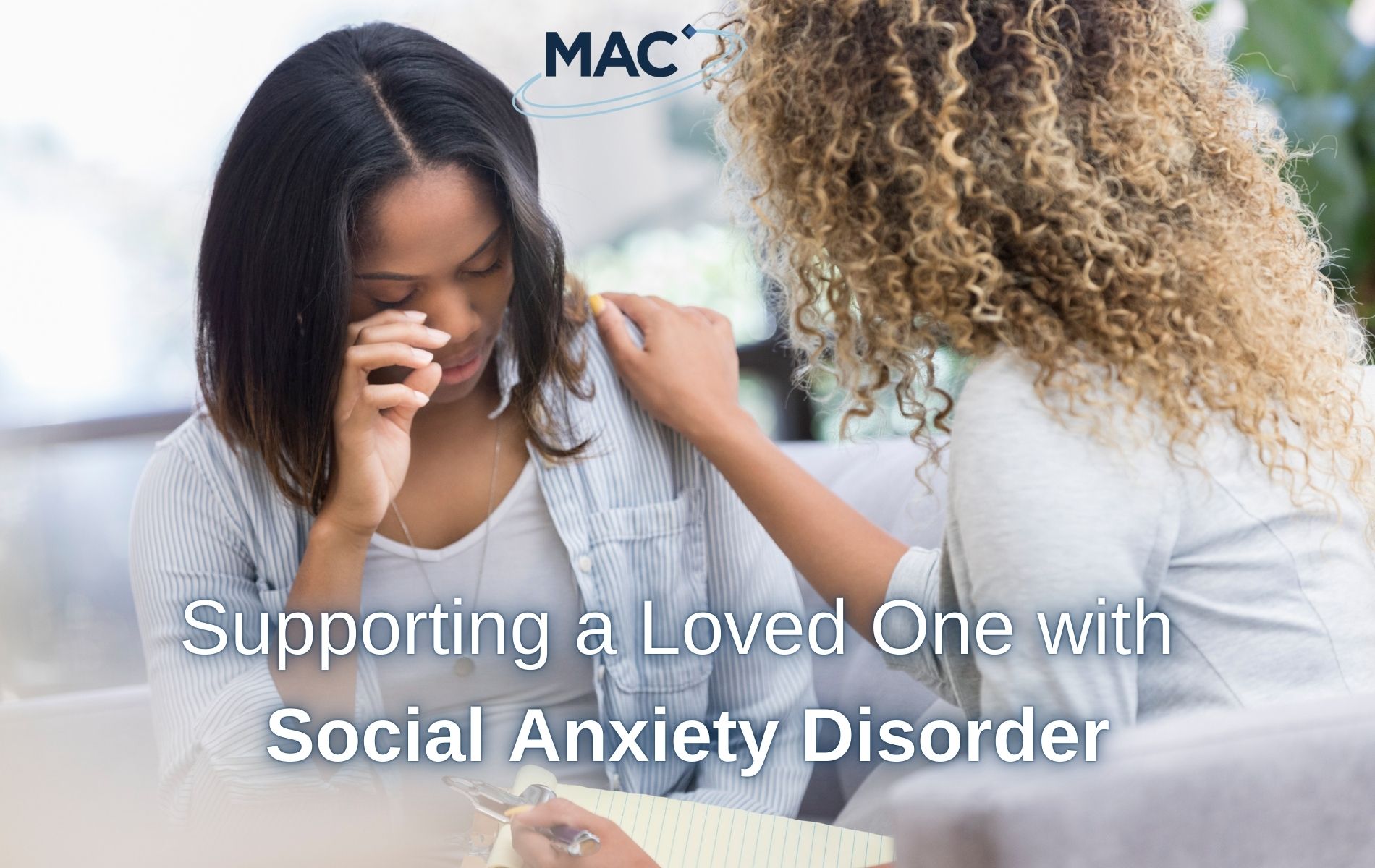Social anxiety disorder is more than shyness and can cause many stresses and inconveniences in people’s daily lives. If someone close to you is experiencing social anxiety, the right support can make a significant difference.
What is social anxiety?
Social anxiety disorder, also known as social phobia, is a type of anxiety disorder that causes fear around social situations1. It is estimated to affect between 10% and 15% of people in the community at some time in their lives2. Social anxiety usually starts in teenage years; it can be very distressing and have a huge impact on an individual’s life1.
Here are some helpful ways you can support a loved one living with social anxiety disorder 3:
Be Patient and Understanding
Actively listening and acknowledging feelings is essential when supporting others. Anxiety can be overwhelming, so being present and attentive is key for someone with social anxiety. Avoid pressuring them for quick improvement; instead, offer unconditional support and empathy as they work through their fears and anxieties. Encouraging open communication can help them to better cope, and creating a safe, non-judgmental space for them to express themselves is crucial in supporting them through their anxiety.
Educate Yourself to Offer Better Support
Understanding your loved one’s condition is key to empathising with their feelings and symptoms. By educating yourself, you will be better equipped to offer meaningful support. You can educate yourself in several ways:
- Find educational resources
Read books, articles, and other educational material to learn about the condition and stay informed about treatment options, such as talking therapy and medications. Also, try to keep up to date on research into new and improved treatments.
- Attend workshops
Consider participating in informational workshops to deepen your understanding, and gain insights into how the condition affects people living with it.
- Explore support groups and charities
Engage with support groups or charitable organisations for families and friends of individuals with social anxiety.
Roleplay Social Interactions
Role-playing social interactions can be a helpful way to practice and build confidence in social situations. Reflecting on possible topics or preparing a few icebreakers before a social event can help reduce anxiety; however, it is important to keep in mind that the key is to be flexible and non-pressurising. The crucial point is to find a good balance between having a general topic and staying spontaneous at the same time.
For someone with social anxiety, the goal is not to be trained to stay perfect in social situations but to help them build trust in themselves during interactions. By supporting them with role-playing social interactions, you can help them to embrace the unpredictability of social interactions as part of the learning process, rather than aiming for flawless execution.
Celebrate Small Successes and Encourage Growth
It’s important to celebrate even the smallest victories. Acknowledging achievements can help individuals to build confidence and encourage them to progress further.
While celebrating, also gently encourage them to move outside of their comfort zone. Pushing beyond familiar boundaries, even in small ways, could help build resilience. The key is to gently encourage them to face their fear and try new experiences, with the safety and support of someone they trust.
Offer Practical Support in Social Interactions
Practical support involves assisting your loved one in concrete ways to reduce their anxiety and enhance their confidence. This could be done in various ways, such as providing transport, helping them prepare, or accompanying them to social events. If your loved one is in education, it might be worth checking with the relevant department to determine the kind of support that would be available for them.
Supporting a loved one with social anxiety requires patience, empathy, and a willingness to learn. With your support, they are better equipped to face their fear and make improvements. The goal is to offer consistent encouragement as they navigate social situations at their own pace. By offering a helping hand, you could play a vital role in helping your loved one build confidence and manage their anxiety in social situations more effectively.
Is Someone You Know Living with Social Anxiety?
Social anxiety disorder is one of the most common of all anxiety disorders4. MAC Clinical Research is currently seeking volunteers who have symptoms of social anxiety and would like to take part in a new clinical trial to evaluate the effectiveness of an investigational medication that may have the potential to treat symptoms of social anxiety disorder.
For more information, please visit our Social Anxiety Disorder webpage.
References
1. NHS – Social Anxiety Disorder (Social Phobia)
2. Anxiety Care UK – Social Anxiety Disorder
3. Simply Psychology – How To Support Someone With Social Anxiety
4. National Collaborating Centre for Mental Health (UK) – Social Anxiety Disorder: Recognition, Assessment and Treatment




